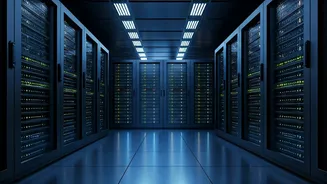The H-1B Foundation
The H-1B visa program has been a significant pathway for skilled workers, especially from India, to enter the United States. Many accomplished tech professionals
began their careers with this visa. These individuals, armed with expertise and ambition, sought opportunities in the US, contributing significantly to the technological advancements and economic growth. The program has facilitated a brain gain, enriching the US workforce with diverse talents and perspectives. However, the system also faced criticisms about potential exploitation and impact on domestic job markets, leading to ongoing debates and reforms aimed at balancing innovation, workforce needs, and fair labor practices.
Tech Leadership Emerges
Several Indian-origin tech professionals, initially holding H-1B visas, have risen to become leaders in major tech companies. Their journeys represent determination, hard work, and a capacity to adapt to the American professional environment. Individuals like Sundar Pichai, Satya Nadella, and Shantanu Narayen, who each served as CEOs of some of the biggest tech companies, are notable examples. Their accomplishments showcase the significant contributions of Indian talent to global technology. They’ve not only shaped technology but also served as role models, inspiring the next generation of tech professionals from similar backgrounds. These leaders demonstrate that with perseverance and adaptability, it is possible to overcome challenges and achieve considerable success in the global tech arena.
Challenges Faced Early On
The road to success for these tech professionals was often fraught with challenges. Adjusting to a new culture, navigating complex immigration processes, and overcoming potential biases required resilience. The H-1B visa itself carries constraints, tied to specific employers and requiring periodic renewals, adding to the uncertainties. The need to adapt to a new work environment, understand local business practices, and develop strong communication skills in English presented hurdles. Despite these challenges, these individuals persevered, leveraging their skills, education, and adaptability to build successful careers. Their ability to overcome these obstacles underscores their determination and drive.
Impact on Tech Innovation
The influx of Indian-origin tech professionals, enabled by the H-1B visa, has profoundly influenced technological innovation in the US. Their expertise has helped propel advances in software development, data science, artificial intelligence, and other critical areas. These individuals often bring unique perspectives and problem-solving approaches, thereby enhancing creativity and competitiveness. They foster diversity in the tech sector, encouraging a broader range of viewpoints and ideas. Their presence has also accelerated the growth of startups and established tech companies, boosting the economy. Their efforts have significantly shaped the global technology landscape, with many innovations originating from their contributions.
Debates and Reforms
The H-1B visa program has been a subject of extensive debate, with some arguing that it leads to job displacement for American workers and wage suppression. These criticisms have prompted reform efforts. Critics contend that some companies exploit the program to hire cheaper foreign labor, while supporters highlight the program's significance for innovation and economic growth. Recent discussions involve increasing minimum wage requirements for H-1B workers and stricter monitoring of compliance. Proposals to increase the number of H-1B visas or streamline the application process are continually considered. Finding a balance between facilitating innovation and protecting the interests of domestic workers remains a key challenge.
The Future Outlook
The future of the H-1B visa program is uncertain, with ongoing reforms and potential adjustments in response to political, economic, and technological changes. The demand for skilled tech workers is likely to continue, but the specific structure of the visa program may evolve. Policy changes concerning immigration, trade, and labor laws could significantly impact the program's future. The role of the program in promoting innovation and its effect on the U.S. job market will remain central issues. As technology evolves, the skill sets needed will change too, which will create the need for continued dialogue and adaptation to keep the program relevant and effective. The program’s role in the broader context of global talent mobility and economic competitiveness will be crucial.






















